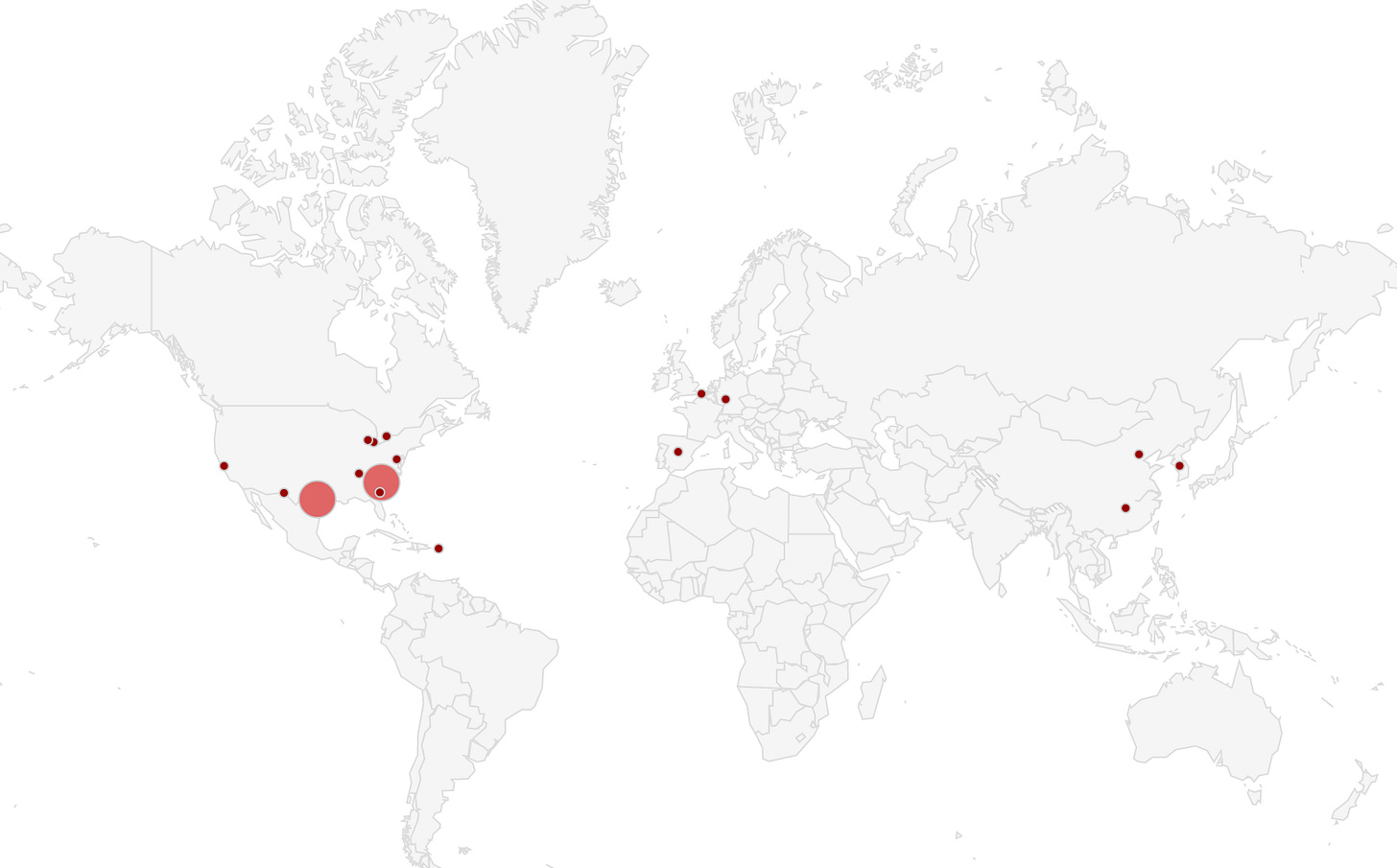Automotive Supply Chain Risk Digest #322
April 7 - 13, 2023 by Elm Analytics
Change In Management
Nissan has named 24-year company veteran Andrew Wareing as its new head of North American purchasing. Wareing will start his new position on May 1.
Expanding
Ford is investing $1.3B into its plant in Oakville, Ontario, Canada, to prepare it for assembling EVs and EV batteries.
Industry Directions
Tesla has cut prices on all its vehicles for the third time this year. The most extensive was $5k off their more expensive models like the S large sedan and the X big SUV.
Mergers, Ventures, Acquisitions
GM will invest in EnergyX, a direct lithium extraction (DLE) startup. The unproven DLE process filters lithium from brine. This procedure would bypass lithium refining (considered a supply-chain bottleneck).
Hyundai has plans to invest $18.4B into South Korea's EV industry through 2030.
VW's software arm, Cariad, has formed a joint venture with China's ThunderSoft. The business will produce infotainment systems for the Chinese market.
Renault struck a deal with Verkor, a French battery startup, to produce cells for its EVs in Dunkirk.
Opening
South Carolina's House approved a $1.3B package to VW to build its $2B Scout EV plant.
VW reviewed 74 sites before selecting the parcel near Columbia. Reuters investigated the scarcity of US locations that meet the criteria for these "megasite" projects.
Chinese EV battery maker SVOLT is looking to build up to five new plants in Europe. The company is targeting a production capacity of at least 50GWh by 2030.
ZF Group is investing $194M into a new e-mobility plant in Ciudad Juarez, Mexico. The new plant will also increase the production capability of the company's current facilities in Ciudad Juarez.
Hyundai supplier Seohan plans to build a new $72M plant near Midway, Georgia. The plant will create at least 180 jobs.
Production Decrease
Lucid reported Q1 production dropped 33% from Q42022. The company has faced supply chain issues while ramping up production. In March, Lucid announced an 18% staff reduction to cut costs during restructuring.
Raw Material Disruption
Tesla reportedly plans to use cheaper iron-based batteries in some of its upcoming vehicles. Elon Musk was quoted last month as saying, "the vast majority of the heavy lifting for electrification will be iron-based cells."
China currently has the lead on sodium-based battery technology. The batteries are less expensive and work well in cold climates. Recent advances have increased charge cycles and capacity. While the cells are larger than lithium, limiting EV adoption, their use in electrical grids is promising. One wrinkle: the US has 90% of the world's natural soda ash. China produces its supply synthetically at coal-powered chemical plants.
Regulation
The US Department of Energy proposes dropping EV petroleum-equivalent ratings, last updated 20 years ago. The current ratings allow a small number of EVs to guarantee compliance for more ICE vehicles.
Legislators in Michigan have approved $410M in subsidies for two new EV battery plants. The incentives will go towards Ford's new plant in Marshall and Our Next Energy's new plant in Van Buren Township.
Spain has launched more flexible subsidy rules encouraging local EV production. Last year only 27% of the allocated funding was distributed. VW and Renault plan to request incentives.
Risk Analytics
Rising interest rates are impacting suppliers' liquidity to the point that some are filing for bankruptcy. Adding that stress to the past three years of pandemic labor and supply chain problems has only worsened situations. Unique Fabricating, a publicly traded supplier, gives a glimpse of what private suppliers face. In a recent SEC filing, its lender, Citizens Bank, stopped advances to their line of credit and increased their interest rate on its loan.
Supply Chain Management Review: Bet on it: Counterfeits are in your global supply chain
SupplyChain247 explores EVs' impact on new supply chain and logistics approaches in Automotive works on its mojo













